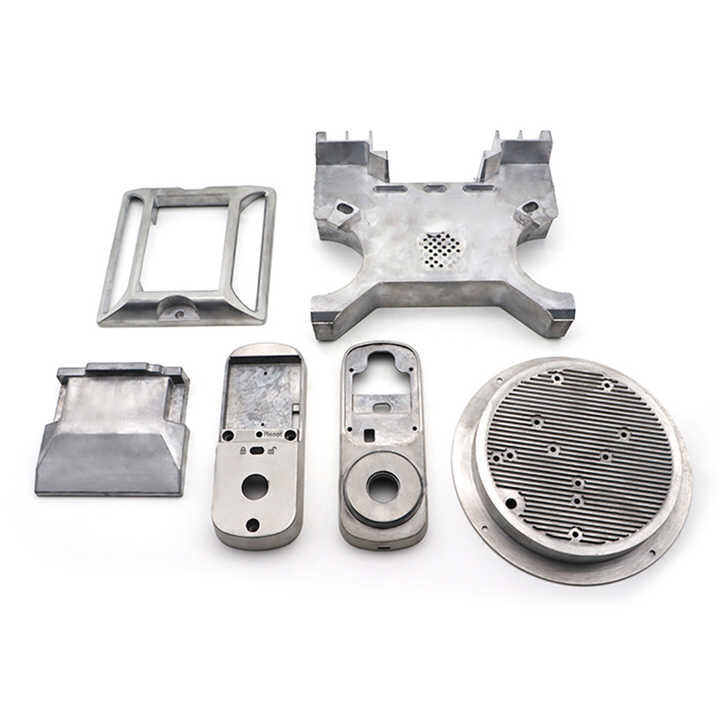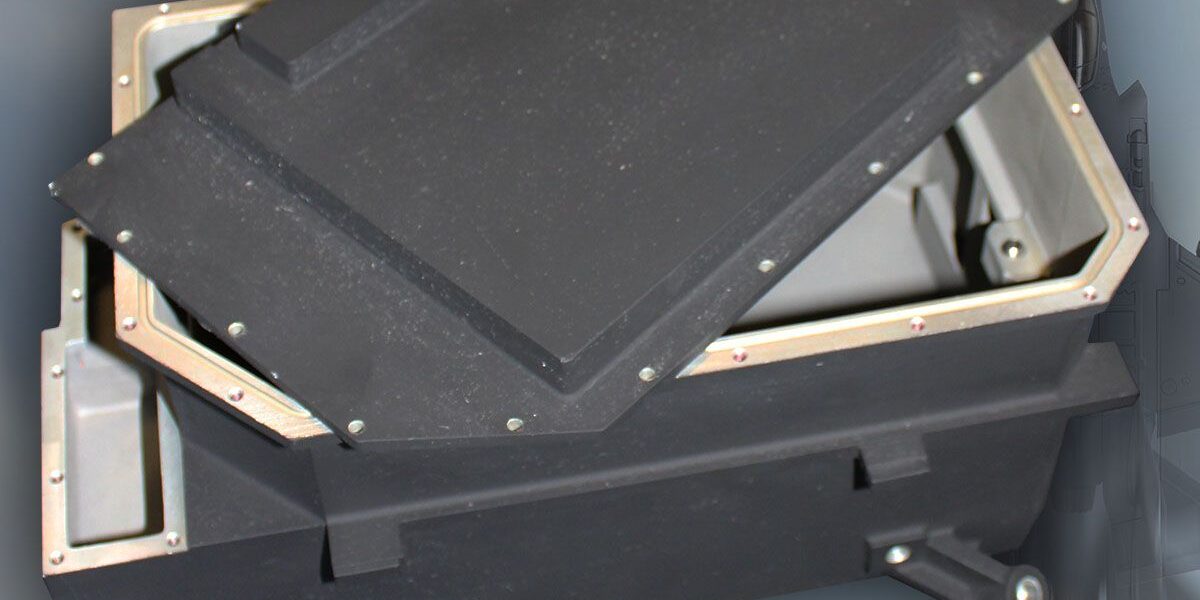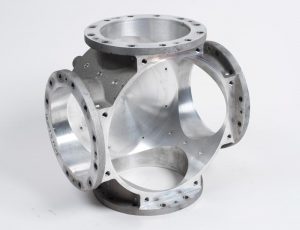Learn how aluminum casting delivers durable manufacturing results
Wiki Article
How Foundry Solutions Enhance Production Effectiveness and High Quality in Industrial Applications
Foundry services play an important function in improving production effectiveness and top quality across different industrial applications. By implementing sophisticated metal spreading methods, these solutions ensure parts are produced with precision and uniformity. This not only decreases lead times yet also minimizes waste, fostering far better cooperation between manufacturers and foundries. The influence of top quality components on functional performance raises vital inquiries regarding the future of industrial manufacturing. What advancements lie in advance in this progressing landscape?The Duty of Factory Services in Streamlining Manufacturing Processes

Furthermore, foundries typically supply expertise in alloy advancement, enabling manufacturers to utilize advanced materials that improve item efficiency. The partnership between foundries and makers fosters a better understanding of production needs, bring about maximized processes and boosted product layouts. By leveraging shop services, suppliers can attain higher flexibility, adapt to transforming market needs, and maintain competitiveness in the sector. In general, the role of shop solutions is crucial in facilitating an extra effective and affordable manufacturing landscape.
Advanced Technologies in Shop Operations
Ingenious technologies are changing factory procedures, substantially improving performance and accuracy. Automation plays a necessary role, with robotic systems improving repeated jobs such as molding and material handling. In addition, developments in computer-aided layout (CAD) and computer-aided manufacturing (CAMERA) systems allow foundries to produce intricate geometries with greater accuracy and reduced product waste.Additionally, the assimilation of fabricated knowledge (AI) and artificial intelligence boosts quality assurance by keeping an eye on procedures in real-time and anticipating potential flaws before they happen. The usage of advanced products, such as lightweight alloys and compounds, better enhances the efficiency qualities of actors products.
Furthermore, 3D printing technology is revolutionizing prototyping and tooling, enabling fast personalization and reduced lead times. Collectively, these advanced innovations not only raise manufacturing effectiveness however additionally ensure that the end products satisfy strict quality criteria, placing foundries at the center of contemporary commercial applications.
Reducing Lead Times Via Effective Factory Practices
Reliable foundry techniques play a crucial function in minimizing lead times within production environments. By executing streamlined production processes and progressed scheduling strategies, suppliers can boost operations and maximize resource allowance. These enhancements not just increase outcome but also contribute to total functional performance.Streamlined Manufacturing Procedures
Streamlining manufacturing processes is crucial for lowering lead times in the manufacturing field. Efficient shop methods, including maximized workflows and source management, play a critical role in achieving this objective. By decreasing waste and enhancing communication among groups, factories can greatly boost their functional performance. The execution of standard treatments additionally adds to consistent top quality and faster turn-around times, making it possible for manufacturers to react even more quickly to market needs. Furthermore, the assimilation of sophisticated technologies, such as automation and real-time surveillance systems, aids in recognizing traffic jams and helping with timely interventions. Generally, a focus on streamlined manufacturing processes not only increases preparations yet also improves the general competitiveness of commercial applications, guaranteeing that products meet consumer assumptions efficiently.Advanced Scheduling Techniques
Effective production procedures normally lead suppliers to discover innovative scheduling methods as a way to even more reduce preparations. By using sophisticated formulas and software program, factories can optimize operations, straightening production timetables with need projections and source accessibility. Techniques such as Just-In-Time (JIT) scheduling reduce stock prices while ensuring prompt product delivery, consequently improving operational effectiveness. Additionally, integrating real-time information analytics allows factories to anticipate prospective delays and adjust routines proactively. This versatility not only enhances operations however also increases general efficiency. Collaborative planning with clients and vendors can promote a more synchronized supply chain, further decreasing lead times. Eventually, these advanced scheduling techniques equip factories to attain greater effectiveness and exceptional quality in their production processes.Ensuring Accuracy and Quality in Steel Casting
Assuring precision and quality in metal casting needs a thorough strategy that encompasses every stage of the production process. This process starts with cautious design and design of the mold and mildews, guaranteeing they can hold up against the molten metal's temperature and pressure. The choice of high-grade raw products is crucial, as impurities can endanger the final item.As soon as the materials are prepared, specific temperature control throughout melting and pouring is essential to achieve the preferred properties in the cast metal. Monitoring solidification and cooling rates more assurances dimensional precision and surface finish.
Quality control practices, such as non-destructive testing and examination, are critical to identifying problems early in the procedure. aluminum casting. In addition, utilizing experienced personnel that understand the nuances of metal Going Here casting adds significantly to preserving high criteria. Generally, these techniques jointly improve the reliability and efficiency of actors parts in various industrial applications
Reducing Waste and Maximizing Resource Utilization

Furthermore, recycling scrap steel within the shop itself can substantially reduce waste, changing spin-offs right into functional resources. Lean producing principles additionally add to throw away decrease by simplifying processes and removing unnecessary actions, bring about extra efficient procedures.
Routine maintenance of tools assurances peak efficiency, stopping breakdowns that can result in read review wasted products. By concentrating on these methods, factories not only reduce costs but also add to lasting techniques, lining up with the growing need for ecologically accountable production methods in commercial applications.
The Competitive Benefit of High-Quality Components out there
Top quality parts give a significant competitive advantage in the foundry market, where precision and sturdiness are extremely important. Producers that focus on premium products and craftsmanship can boost product performance and reliability, bring about enhanced customer satisfaction. This benefit is particularly obvious in sectors such as vehicle and aerospace, where component failure can have catastrophic repercussions.Top notch components frequently result in reduced upkeep costs and extended item life expectancies, which can be attractive marketing points for possible clients. As market demands expand for efficient and sustainable innovations, the emphasis on quality ends up being much more important. Companies that spend in top quality factory services not only enhance their manufacturing procedures yet likewise separate themselves from rivals who may sacrifice high quality for price financial savings. Subsequently, the dedication to high-quality elements eventually converts right into a stronger market position and long-lasting service success.
Often Asked Concerns
What Kinds of Materials Do Shop Provider Usually Work With?
Shop services usually deal with steels such as light weight aluminum, brass, iron, and steel, in addition to numerous alloys. They additionally deal with materials like porcelains and compounds, satisfying varied industrial demands and requirements in producing procedures.How Do Factory Services Effect Overall Supply Chain Management?
Foundry solutions significantly boost supply chain administration by enhancing material sourcing, decreasing preparations, and making sure consistent high quality. Their ability to offer customized options promotes cooperation amongst stakeholders, eventually improving general functional performance and responsiveness in manufacturing.What Industries Advantage A Lot Of From Foundry Providers?
Industries such as automobile, construction, aerospace, and customer items substantially take advantage of factory services. These industries count on accuracy castings to meet strict top quality standards and enhance their general manufacturing procedures and item performance.Are Factory Providers Sustainable and Environmentally Friendly?
Shop solutions can be lasting and environmentally friendly, particularly when using advanced innovations and processes - Aluminum Casting Company. Innovations such as reusing products, reducing emissions, and maximizing energy use add to lessening their ecological effect in commercial applications
How Can Companies Pick the Right Foundry Company?
Companies can pick the ideal factory company by reviewing proficiency, manufacturing capacities, quality accreditations, innovation utilized, client evaluations, and sustainability practices while ensuring alignment with their details job requirements and lasting article source organization objectives.Foundry solutions play a crucial role in improving manufacturing effectiveness and quality across different industrial applications. The collaboration between manufacturers and factories fosters a far better understanding of production demands, leading to maximized processes and boosted product designs. Effective shop techniques play an essential duty in lessening lead times within production settings. By employing innovative algorithms and software program, foundries can enhance operations, aligning production timetables with need forecasts and source accessibility. Firms that spend in high-grade shop services not only enhance their manufacturing processes but likewise distinguish themselves from competitors that might give up high quality for expense savings.
Report this wiki page